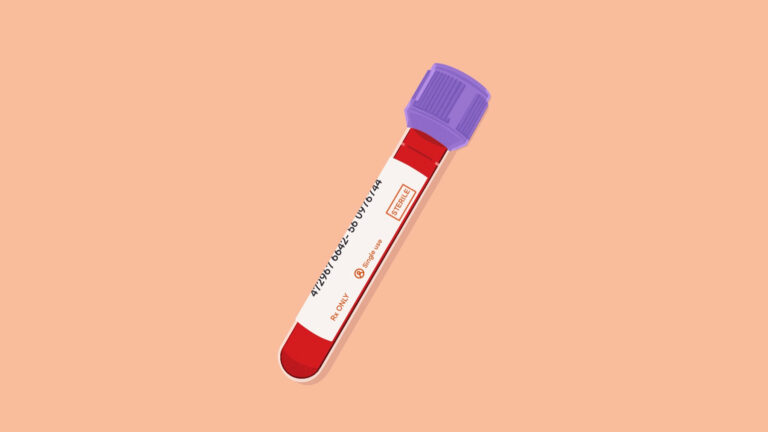Forget fitness; movement health is a trillion-dollar opportunity.
From Jeff Bezos to Tom Brady and a growing number of startups, prioritizing healthy movement has become the focus of workplace wellness, athletic performance, and everyday well-being.
Pain Point
Chronic pain and injuries stemming from musculoskeletal (MSK) conditions are on the rise.
- 1.71B people suffer from MSK conditions worldwide.
- More than 50% of US adults report back or joint pain.
- MSK costs in the US, including care and productivity, exceed $980B/year.
Affecting the human musculoskeletal system, MSK issues often result from overuse or repetitive strain. Sedentary behavior, like prolonged sitting and low physical activity, can worsen MSK conditions. And treatments range from massage and physical therapy to medication and surgery.
While physical therapy has proven effective at providing relief, a lack of adherence on the patient’s part can hinder outcomes. More than ever, digital options are increasing access to care, but prescription pain medication and surgical interventions are common.
In addition to being expensive, back procedures can cost $60–110K, and surgery isn’t a sure thing. In fact, some MSK-related procedures have been called “unnecessary” or “useless.” Worse, continued reliance on opioids threatens to perpetuate the addiction epidemic.
Digital MSK Care
A drain on the healthcare costs, productivity, and quality of life, MSK conditions are expensive and largely preventable. For employers, the issue is especially costly:
- MSK care costs US employers upwards of $100B/year.
- MSK issues account for 30% of workers’ compensation costs.
- Back pain alone accounts for more than 264M lost workdays/year.
According to a Business Group on Health (BGH) survey, in 2020, musculoskeletal pain was a top source of healthcare spending for 90% of employers. As a result, 68% of respondents plan to offer a corporate musculoskeletal program by 2023.
The shift to remote work has intensified this problem. While working from home, 70% of employees with MSK pain said their condition worsened or they’re experiencing new pain.
Well-positioned, digital health startups tackling MSK care are partnering with employers and health plans to deliver tech-enabled physical therapy.
Hinge Health. Founded in 2015 and valued north of $6B, Hinge Health has raised more than $1B for its digital MSK clinic. In March, the company acquired Enso, an electrical stimulation wearable, to deliver noninvasive pain relief.
Boasting impressive results, Hinge’s protocol has been shown to deliver better pain reduction than opioids, helps users avoid surgery, and save employers $4,336 per participant — which explains its 100% retention rate among 300+ corporate clients.
Kaia Health. Digital therapeutics company Kaia Health added $75M in April, totaling $125M to date, to tackle MSK conditions. Referring to itself as “the biggest player in the space,” Kaia says some 60M patients have access to its platform.
According to founder and CEO Konstantin Mehl, during the pandemic, Kaia’s growth accelerated 600% YoY. Speaking to the opportunity in the space, 3VC partner and Kaia investor Peter Lasinger said: “Looking at Kaia Health and the digital health market, I would say that software is eating pills.”
SWORD Health. Virtual MSK care provider SWORD Health also offers a digital platform for physical therapy. The company closed a $75M funding round to build on what was “a breakout year” according to founder and CEO Virgílio Bento. That breakout success included eight-fold revenue growth and a five-fold increase in active users.
Zooming out: Expanding their offerings, chronic disease management companies are moving into MSK. Indicative of a broader trend that will affect the digital health landscape, Omada Health and DarioHealth both made acquisitions in the space, purchasing Physera and Upright, respectively.
Meanwhile, in recent months, funding continued to flow to the space: Vori Health raised $45M, Clearing brought in $20M, and SpineZone landed $12M.
Amazon Enters MSK
In his 2020 letter to shareholders—his last as CEO—Amazon’s Jeff Bezos called out MSK disorders specifically, urging the company to prioritize this issue:
“…about 40% of work-related injuries at Amazon are related to musculoskeletal disorders (MSDs), things like sprains or strains that can be caused by repetitive motions.”
Internally, Amazon is developing workplace practices meant to reduce MSDs. Meanwhile, the company’s latest consumer fitness service signals a broader focus on MSK conditions.
ICYMI: Last week, Amazon introduced Movement Health, a new feature for Halo — the company’s wearable device and health app.
Using computer vision and machine learning, Movement Health scores a user’s stability, posture, and mobility in different areas of the body. Based on the results, users receive a personalized program of corrective exercises to improve their movement.
Of note, Movement Heath was developed in partnership with physical therapist, mobility guru, and CrossFit OG Dr. Kelly Starrett.
In a blog post announcing Movement Health, Njenga Kariuki, senior technical product manager for Amazon Halo, wrote:
“Professional athletes pay close attention to their movement health in order to maximize their performance and accelerate recovery, but it’s a useful and important part of everyone’s wellness—no matter your level of activity.”
Movement’s Moment
From The Rise of Recovery and The Quantified Athlete to WFH Wellness and Ending Inactivity, Kariuki’s statement represents a convergence of trends we’ve previously touched on.
Nothing new, pro athletes and fitness seekers rely on mobility training, myofascial release, and corrective exercises to improve performance.
Tampa Bay Buccaneers quarterback Tom Brady credits his career and growing TB12 empire to pliability: “the state in which your muscles are long, soft, and resilient, enabling them to absorb and disperse forces — in both sport and daily life.”
Appealing to athletes, companies like GOWOD, ROMWOD, MVMNT, and The Ready State (from Movement Health partner Dr. Kelly Starrett) have moved mobility training into the mainstream.
Beyond the two extremes—pro athletes and individuals experiencing debilitating pain—simple, effective solutions for movement health, like movement assessment and prescriptive exercise apps like movr*, represent a massive opportunity.
Looking ahead: Following in the footsteps of meditation apps like Calm and Headspace, movement and mobility could become the new mindfulness as we look to undo the harmful effects of stiff, sore muscles.
*Fitt Insider is an investor in movr
🎙 On the Podcast
This week, on the Fitt Insider podcast, we’re joined by Josh McCarter, CEO of Mindbody — a business management software for fitness and wellness services.
In this episode, we discuss COVID’s impact on the fitness industry. Plus, Josh explains how the company navigated the pandemic, including layoffs, his transition to CEO, and the launch of virtual experiences
We talk about the future of fitness, including digital content, the role of fitness professionals, and the return to exercising in person.
Listen to the episode here.
🍎 Metabolic Health
Using a continuous glucose monitor (CGM) and software to deliver real-time feedback, metabolic health startups are scaling up.
The problem: Poor diet is a leading cause of mortality in the US, causing more than half a million deaths per year.
- In the US, the total economic cost of obesity is $1.72T per year.
- 40% of US adults are obese and 100M Americans have diabetes/prediabetes.
- Diabetes-related medical costs and productivity loss will exceed $600B by 2030.
What it is: Glucose tracking plays a critical role in the treatment of diabetes. Urine tests and finger pricking have been the status quo for years. But now, glucose monitoring is gaining wider appeal.
A key indicator of metabolic health, measuring blood sugar levels can shed light on how lifestyle choices like diet, exercise, and sleep affect your body.
While activity tracking and sleep monitoring wearables like Apple Watch, Fitbit, and WHOOP have caught on, there’s no mainstream method for quantifying the effects of diet.
Who’s who. A large, lucrative market ripe for disruption, metabolic health has attracted startups and investors.
- Levels raised a $12M seed round last fall.
- Supersapiens announced $13.5M in April.
- January secured $8.8M ($20M total) in February.
This week, Veri and Vital announced new funding. Among others, NutriSense and Signos also compete in this space.
What to watch for: Since many of the metabolic health upstarts don’t own the CGM hardware, manufacturers Abbott and Dexcom have the leverage here. Looking large, Apple, Amazon, Google, and Fitbit have expressed varying degrees of interest in blood glucose monitoring, which could pose a host of new challenges.
📰 News & Notes
- RXBAR debuts a plant-based protein bar.
- A new weight loss drug receives FDA approval.
- Samsung tests a stretchable, skin-like wearable.
- Weekly roundup: Cool health/fitness jobs from our network.
- America has a drinking problem. [Reread: The End of Alcohol]
- Connected rowing company Hydrow explores a public offering.
- M13 Launchpad: Seeking human performance & longevity founders.
- Outside+ debuts an active lifestyle bundle. [On the pod: Outside CEO Robin Thurston]
💰 Money Moves
- Thirty Madison, a digital healthcare company specializing in treating chronic conditions, raised $140M in Series C funding, valuing the company at more than $1B.
- At-home lab testing company LetsGetChecked secured a $150M investment at a $1B+ valuation.
- Glucose monitoring startup Veri closed a $4M seed round, led by PROfounders Capital.
- “Strava for Health” upstart Vital announced the close of its pre-seed funding round.
- Rise Science, a sleep improvement and energy management app, landed a $10M Series A round led by Goodwater Capital, bringing total funding to $15.5M.
- Liteboxer, an interactive at-home boxing experience, raised $20M in Series A funding led by Nimble Ventures, with participation from music producer/artist Timbaland.
On the pod: Liteboxer CEO Jeff Morin - Connected vertical climbing machine CLMBR announced $13.5M in new funding.
On the pod: CLMBR CEO Avrum Elmakis - Fitness startup Curefit is set to receive up to $75M in funding from Tata Digital.
- NUE Life Health, a telemedicine company for psychedelic-assisted therapy, raised $3.3M in seed funding.
More from Fitt Insider: The ’Shroom Boom - Rae Wellness, a women’s health and supplement company, raised $9.5M led by PowerPlant Ventures.
On the Pod: PowerPlant managing partner Dan Gluck - DayTwo, a platform for personalized nutrition based on the microbiome, secured a $37M investment.
More from Fitt Insider: Gut Check - Hungryroot, a personalized grocery service, raised $40M in new funding at a $750M valuation. L Catterton led the round.
On the Pod: L Catterton managing partners Michael Farello & Jon Owsley - SIMULATE, makers of NUGGS plant-based “chicken” nuggets, raised $50M in funding led by Seven Seven Six, Reddit co-founder Alexis Ohanian’s venture firm.
- NotCo, a plant-based food tech company, landed an investment from Enlightened Hospitality Investments, where Shake Shack founder Danny Meyer is a partner.
- Self Esteem Brands, parent company of Anytime Fitness, The Bar Method, and other wellness businesses, acquired Stronger U, a digital nutrition coaching service.
- Norbert Health, creator of contactless vital sign scanning technology, closed a $5M seed round.
- Intrinsic raised $113M in Series A funding to acquire and scale health and wellness brands that sell on Amazon.
- XRHealth, a provider of extended and virtual reality therapeutics, announced $9M in new funding.
- Hooray Foods, a plant-based meat company, raised $2M in seed funding led by Evolution VC Partners.
- Athena Club, a direct-to-consumer bodycare and wellness company, raised $15M in Series A funding.






